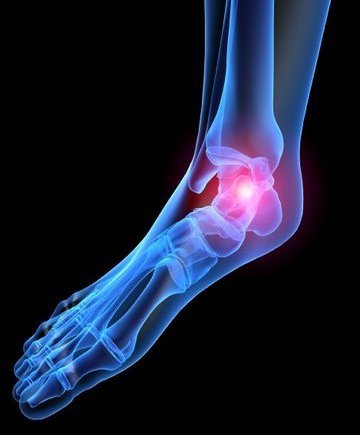 When individuals begin to experience intense pain in their heel, many know that they have acquired plantar fasciitis. This ailment occurs when the plantar fascia ligament along the bottom of the foot develops tears in the tissue. This will result in pain and inflammation of the area closest to the heel bone.
When individuals begin to experience intense pain in their heel, many know that they have acquired plantar fasciitis. This ailment occurs when the plantar fascia ligament along the bottom of the foot develops tears in the tissue. This will result in pain and inflammation of the area closest to the heel bone.
The most common symptoms of plantar fasciitis include:
- Burning
- Stabbing
- An aching pain in the heel of the foot
The fascia ligament tightens up over night and therefore causes the most pain in the morning. Pain generally decreases as the tissue warms up, but oftentimes returns after long periods of standing or weight bearing and physical activity.
One of the prevalent factors that contribute to plantar fasciitis is wearing incorrect shoes. This includes shoes that either don’t fit properly, or provide inadequate support or cushioning. Weight distribution becomes impaired while wearing shoes that are unsupportive. Therein, adding significantly stress to the plantar fascia ligament.
In most cases, treatment of plantar fasciitis doesn’t require surgery or invasive procedures to stop pain and reverse damage. Traditional treatments are usually all that is required. However, keep in mind that every person's body responds to the treatment differently and recovery times will vary.
Heel pain is an extremely common and potentially disruptive affliction that has many possible causes, including stress fractures, arthritis, nerve irritation, cysts, tendonitis and most often, plantar fasciitis. Plantar fasciitis occurs when the tissue that connects the heel to the toes becomes inflamed. This inflammation causes pain on the bottom of the heel that can continue to grow in intensity over time.
You may be prone to developing this painful condition if the mechanics of your feet aren’t ideal, such as flat feet or excessively high arches, or if you have poor alignment in your feet that causes you to walk on the inner or outer edges of your feet. Overweight individuals may be more likely to develop plantar fasciitis and it can occur from spending hours on the feet in shoes that offer little or no support.
Treatment options for plantar fasciitis included an effective stretching regimen, icing, footwear modifications, anti-inflammatory medications and weigh reduction to lessen the impact on the feet. More severe cases may be treated with additional padding and orthotic devices, the use of a walking cast, night splints and physical therapy. If you are experiencing heel pain, visit with one of our podiatry specialists to learn if you may be suffering from plantar fasciitis.

